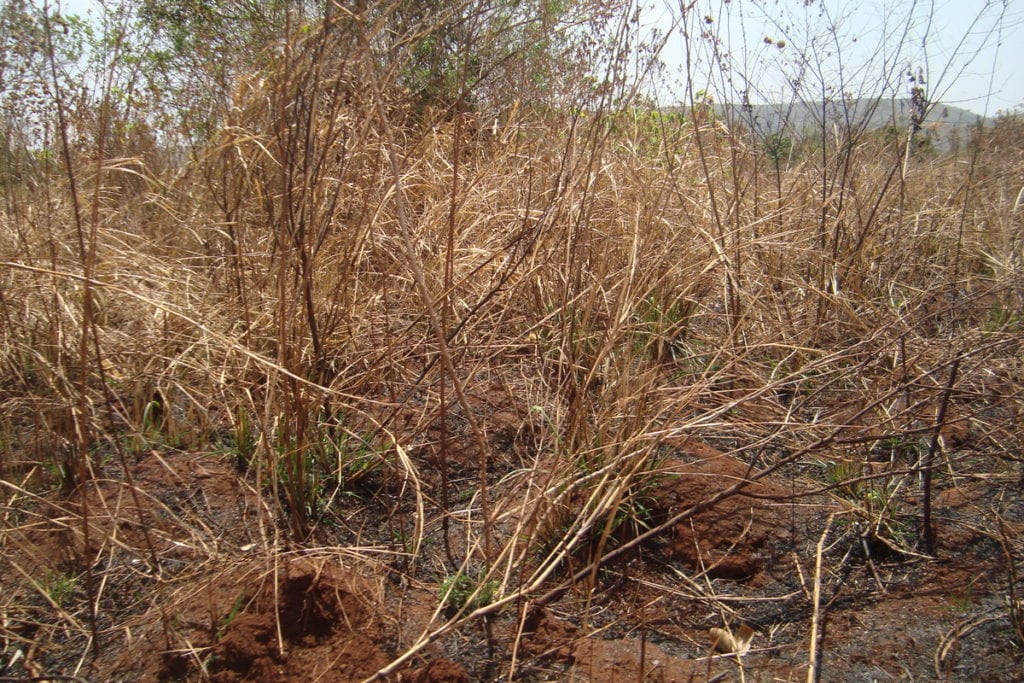They say a “picture is worth a thousand words,” but this particular photo communicates even more.
As someone who is passionate about photography and who studied photo-journalism, I was struck by this picture from a few weeks ago of Central American migrant farmworkers continuing to harvest produce as smoke from the California wildfires blocked out the sun. It shows in such a powerful way how the major crises we are facing as a planet all reinforce and intersect with each other.
• Climate change is no longer something abstract, something happening elsewhere, or something that will happen in the future. Climate change is causing devastation here and now. The California wildfires that have killed almost 100 people and caused devastation across the state are due in large part to climate change. California is seeing more unpredictable weather like droughts and wind that are linked to climate change and exacerbate the state’s existing vulnerability to wildfires. Globally, climate change is worsening, and the excessive warming is provoking more aggressive climate events such as droughts, floods, and fires that can, in an instant, destroy miles of infrastructures and houses that took years to build, displacing tens or even hundreds of thousands of people. Climate change is also not just impacting developing countries. More and more we see the devastating effects of climate change in wealthy countries, whose high levels of economic, social, and technological development still can’t cope with the devastating impacts of climate disasters.
• The model of industrial agriculture is one of the major drivers of climate change. It relies on fossil fuels for its machines and chemicals, contributes to deforestation, and pollutes through factory farms – and it must be transformed. One of the most overlooked ways to stop climate change and cool the planet is transforming the way we produce, process, distribute, and consume our food. Industrial agriculture contributes about 24-33% of global greenhouse gas emissions. In California, industrial-scale agriculture and increasing corporate control over the production of fruits, vegetables, nuts, grapes, and citrus has led to the alarming depletion and contamination of water resources. These trends are creating the conditions for these fires.
• The industrial food and agriculture system of the U.S. was built on and continues to rely on the exploitation of black, brown, and indigenous rural workers. We can’t stop climate change without stopping the exploitation of these workers and the injustices immigrants and indigenous people face. This photo lays bare the drama – or even desperation – of immigrant agricultural workers while also showing the immeasurable contributions that the millions of indigenous and immigrant workers in the food system make to us all, despite the exploitation, oppression, and invisibilization they experience. In the U.S., the average life expectancy of a farmworker is only 49 years – which makes it one of the most dangerous jobs in the country – due to exposure to heat, harsh chemicals, machinery, draconian labor conditions (and terrible air quality as in the photo above) that have them working in the field even in such an unhealthy and risky situation. They are forced to work to get their daily wage, without any means of protection from the smoke and associated breath risks. These are the immigrants that our government is pushing out and tearing away from their children at the border. These are the people who feed us in a grossly unjust system where agricultural workers are exploited to put cheap food on our tables while the profits of farm owners and companies increase.
• The increasing commodification of food produced by new digital, biological, and financial technologies separates and alienates consumers from the reality of how their food is produced. This limits our ability to make the changes we all need to achieve social and economic justice and stop climate change. The so-called Fourth Industrial Revolution, marked by a fusion of new and emerging technologies, is shaping the food system in a way that exacerbates poverty and injustice. Giant retailers and big supermarkets are creating the false perception that food is disconnected from the people who produce it. This myth is driven by the increased digitalization of food information, the financialization of natural resources, and dematerialization of food through advertising and virtual markets. The reality is that behind the food we eat, there are always people who work hard to produce it, often in terrible conditions, and the picture makes that reality painfully clear. Small-scale food producers and farmworkers make a living from producing food, and their rights – not just as workers but as human beings – must be protected and respected.
This picture puts the contradictions we are facing in stark contrast to one another and highlights both the problems and their needed solutions. Stopping climate change is more than just about transitioning to clean energy or keeping carbon out of the atmosphere. It requires a shift in every aspect of society and the ways we relate to the natural world.
We need to realize that climate change is affecting all of us. Rich countries which are primarily responsible for global warming must do their fair share to keep temperature rise below 1.5 degrees Celsius.
We need to approach food not as a commodity but as a common good. Access to food is not a prerogative of wealthy elites. It is a right for all human beings.
We must look at and change the reality of the current agricultural system in developed countries, where food is increasingly produced and harvested by millions of immigrants who are exploited as agricultural workers without any safeguard and respect for their rights.
We must respect and protect the rights of all food producers, especially the small-scale producers who are most vulnerable to economic shocks yet also produce 80% of the world’s food.
We need to internalize the nexus between food and climate, because only by doing this will we be able to build healthy and sustainable food systems that protect the environment and respect the rights of all people.

